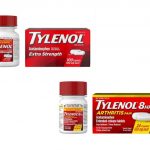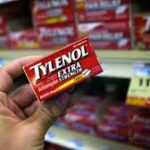Does Tylenol Cause Constipation?

Tylenol also known as acetaminophen is a medication that relieves mild-to-moderate pain, headache, and fever. You can use acetaminophen to relieve mild or moderate pain. This is usually pain from colds, sore throats, headaches, body or muscle aches, menstrual cramps, arthritis, or toothaches. You can also use it to reduce fever.
It’s not fully known how acetaminophen works. It doesn’t reduce swelling or inflammation. Instead, it’s thought that it blocks the release of certain chemicals in your brain that signal the sensation of pain.
How should I take Tylenol?
Take Tylenol exactly as directed on the label, or as prescribed by your doctor. An overdose can damage your liver or cause death.
Acetaminophen comes in many different forms such as capsules, liquid, chewable or disintegrating tablets, and dissolving powders or granules. Read and carefully follow any Instructions for Use provided with your medicine. Ask your doctor or pharmacist if you need help.
• Adults and teenagers at least 12 years old: Do not take more than 1000 milligrams (mg) at one time or more than 4000 mg in 24 hours.
• Children younger than 12 years old: Do not take more than 5 doses of children’s formula acetaminophen in 24 hours.
Do not give extra-strength acetaminophen to a child younger than 12 years old without medical advice.
A child’s dose is based on age and weight. Carefully follow the dosing instructions provided with acetaminophen. Ask a doctor before giving this medicine to a child younger than 2 years.
Tylenol made for infants comes with its own medicine dropper or oral syringe. Measuring with the wrong device may cause an overdose. Use only the provided dosing device provided to measure an infant’s dose.
Liquid Tylenol made for infants comes with its own medicine dropper or oral syringe. Measuring with the wrong device may cause an overdose. Use only the provided dosing device provided to measure an infant’s dose.
Acetaminophen made for infants is available in two different dose concentrations, and each concentration comes with its own medicine dropper or oral syringe. These dosing devices are not equal between the different concentrations. Using the wrong device may cause you to give your child an overdose of acetaminophen. Never mix and match dosing devices between infant formulations of acetaminophen.
You may need to shake the liquid before each use. Follow the directions on the medicine label.
The chewable tablet must be chewed thoroughly before you swallow it.
Make sure your hands are dry when handling the acetaminophen disintegrating tablet. Place the tablet on your tongue. It will begin to dissolve right away. Do not swallow the tablet whole. Allow it to dissolve in your mouth without chewing.
To use the acetaminophen effervescent granules, dissolve one packet of the granules in at least 4 ounces of water. Stir this mixture and drink all of it right away. To make sure you get the entire dose, add a little more water to the same glass, swirl gently and drink right away.
The oral powder should be placed directly on the tongue and swallowed.
Stop taking this medicine and call your doctor if:
• you still have a sore throat after 2 days of use;
• you still have a fever after 3 days of use;
• you still have pain after 7 days of use (or 5 days if treating a child);
• you have a skin rash, ongoing headache, nausea, vomiting, redness or swelling; or
• your symptoms get worse, or if you have any new symptoms.
Taking acetaminophen may cause false results with certain blood glucose monitors. If you have diabetes, ask your doctor about the best way to monitor your blood sugar levels while using this medicine.
What is constipation?
Constipation is a condition in which a person has uncomfortable or infrequent bowel movements. Generally, a person is considered to be constipated when bowel movements result in passage of small amounts of hard, dry stool, usually fewer than three times a week. However, normal stool elimination may consist of having a bowel movement three times a day or three times a week; it depends on the person.
About 4 million people in the United States have frequent constipation. Constipation is the most common gastrointestinal complaint, resulting in 2.5 million doctor visits annually.
Hard, dry stools are the result of the colon absorbing too much water. Normally, as food moves through the colon (also known as the large intestine) the colon absorbs water while forming stool (waste products). Muscle contractions then push the stool toward the rectum, and, by the time the stool reaches the rectum, most of the water has been absorbed, making the stool solid.
When the colon’s muscle contractions are slow or sluggish, the stool moves through the colon too slowly, resulting in too much water being absorbed.
Does Tylenol cause constipation?
Yes, constipation is one of the most commonly reported adverse reactions after taking Tylenol. According to research, chronic constipation is associated with use of acetaminophen, aspirin and non-steroidal anti-inflammatory drugs. This happens because they can affect the nerve and muscle activity in the colon (large intestine), resulting in the slow and difficult passage of stool. Other side effects of Tylenol include:
- clay-colored stools,
- dark urine,
- headache,
- itching,
- loss of appetite,
- nausea,
- rash,
- stomach pain,
Get medical help right away if you notice symptoms of a rare serious allergic reaction to Tylenol, including:
- rash,
- itching or swelling (especially of the face/tongue/throat),
- severe dizziness,
- or trouble breathing.
Tylenol may cause other side effects. Call your doctor if you have any unusual problems while you are taking this medication.
If you experience a serious side effect, you or your doctor may send a report to the Food and Drug Administration’s (FDA) MedWatch Adverse Event Reporting program online (http://www.fda.gov/Safety/MedWatch) or by phone (1-800-332-1088).





